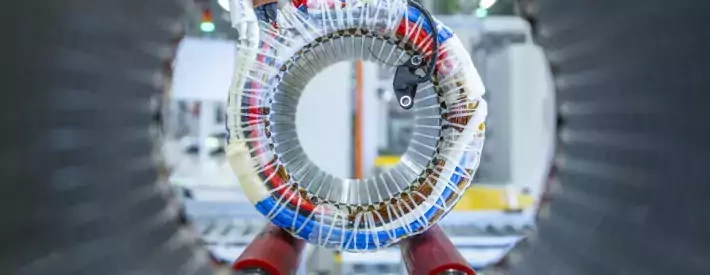10 things the Zero Emission Vehicle mandate means for automotive

The Zero Emission Vehicle (ZEV) sales mandate is now part of UK law and that means big things for the automotive sector. Poised to revolutionise the automotive market by 2024, it overlaps with the complex web of Rule of Origin regulations that govern international trade.
What does that mean for the sector. Well, a lot. Its reach goes beyond the UK and touches the global automotive industry, here are the 10 aspects you need to know about
1 ZEV mandate as a catalyst
The UK’s ZEV mandate, requiring a significant percentage of a manufacturer's sales to be zero-emission vehicles, is a bold move towards environmental sustainability. It necessitates a rapid increase in EV production, presenting a substantial market opportunity for manufacturers.
2 Rule of origin balancing act
The Rule of Origin (RoO), determining the economic nationality of a vehicle based on its components' origin, plays a critical role in international trade. Under various Free Trade Agreements (FTAs), vehicles meeting these criteria benefit from lowered tariffs and enhanced market access.
3 Manufacturing strategy and supply chain reconfiguration
Automotive manufacturers, in response to the ZEV mandate, will need to adjust their manufacturing strategies. The RoO adds another layer of complexity, as sourcing decisions for EV components like batteries, electric motors, and electronic systems must align with RoO requirements to capitalise on FTA benefits.
4 Global implications
As manufacturers pivot towards EV production to meet the ZEV targets, the global automotive supply chain will undergo significant shifts. Countries that are major suppliers of EV components may gain an upper hand in trade, while those reliant on traditional automotive parts may need to adapt.
5 Compliance and cost implications
Adhering to RoO can be costly and complex, requiring detailed tracking of the origin of each component. This complexity is amplified in the context of EVs, where the supply chain is more global and technologically advanced than traditional vehicles.
6 Driving innovation
To meet both the ZEV mandate and RoO, there will be an increased focus on innovation and R&D, particularly in developing more efficient and cost-effective EV components that meet the origin criteria of major markets.
7 Consumer impact and market dynamics
The ZEV mandate will likely lead to an increased availability and diversity of EVs in the UK market. However, RoO regulations may affect the pricing and competitiveness of these vehicles, depending on the origin of their key components.
8 Synergy and conflict
While the ZEV mandate aims at environmental sustainability, RoO regulations are more about economic considerations in trade. There can be synergies, such as when RoO encourages local sourcing of green technology, but also potential conflicts if RoO criteria make it challenging to source the most environmentally efficient technologies.
9 Strategic implications for smaller manufacturers
Smaller manufacturers or those producing niche vehicles face unique challenges. They must navigate these regulatory landscapes, which could either incentivise or penalise their specific manufacturing and sourcing models.
10 Long-Term transformation
These intersecting policies might accelerate the transformation of the automotive industry, driving it towards a more integrated, globally interconnected, yet environmentally conscious future – but there will need to be confidence in the policy to support it.
The intersection of the UK's ZEV sales mandate and the RoO represents a paradigm shift in the automotive industry. Manufacturers need to strategically align their production and sourcing to not only comply with environmental mandates but also to leverage trade advantages. This complex interplay demands agility, foresight, and innovation from all stakeholders, shaping a future where sustainability and global trade coexist in a mutually reinforcing manner. The decisions made today will chart the course of the automotive industry for decades to come, with implications far beyond the borders of the UK.
Hayley Pells is Policy and Public Affairs Lead at the Institute of the Motor Industry




